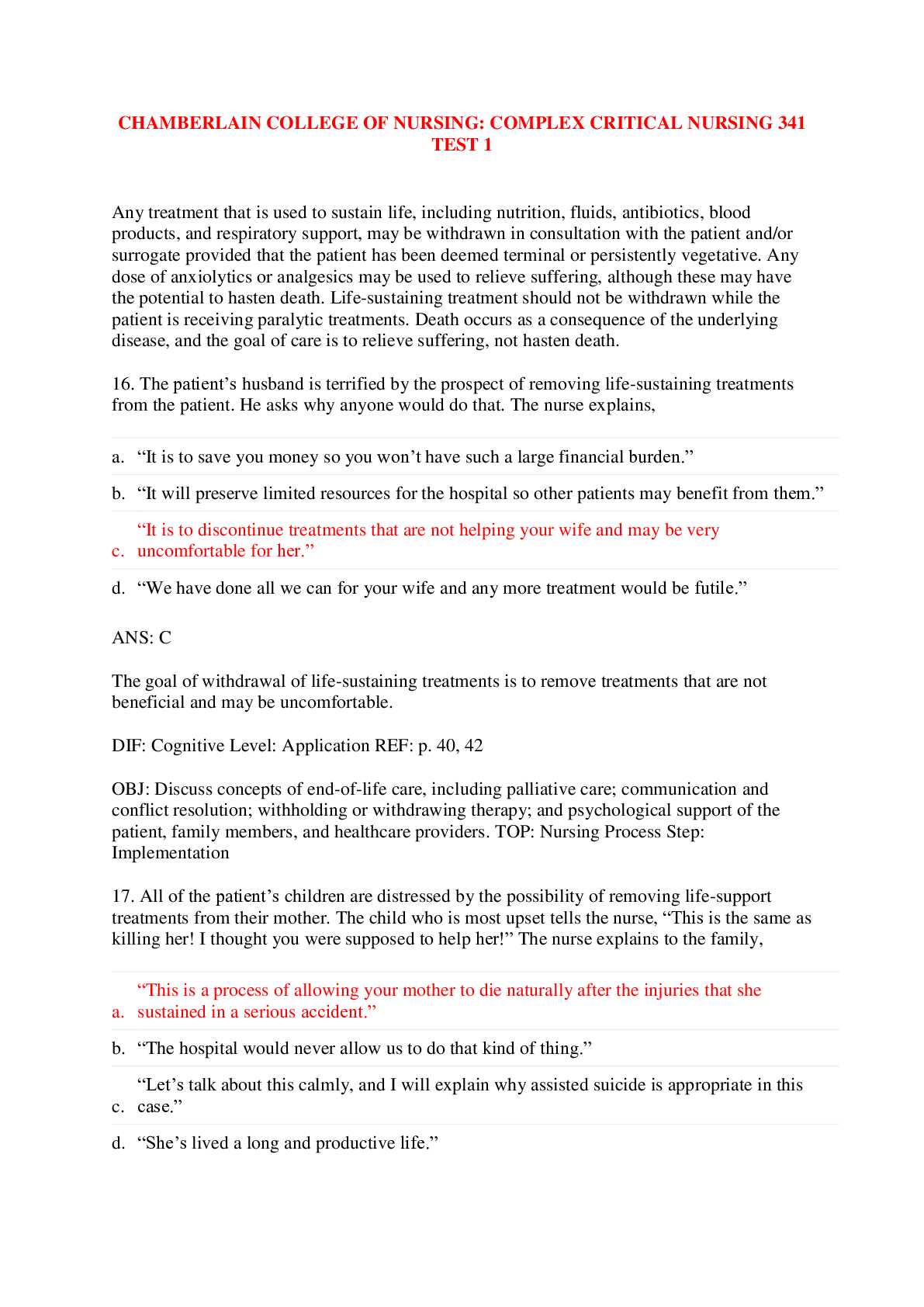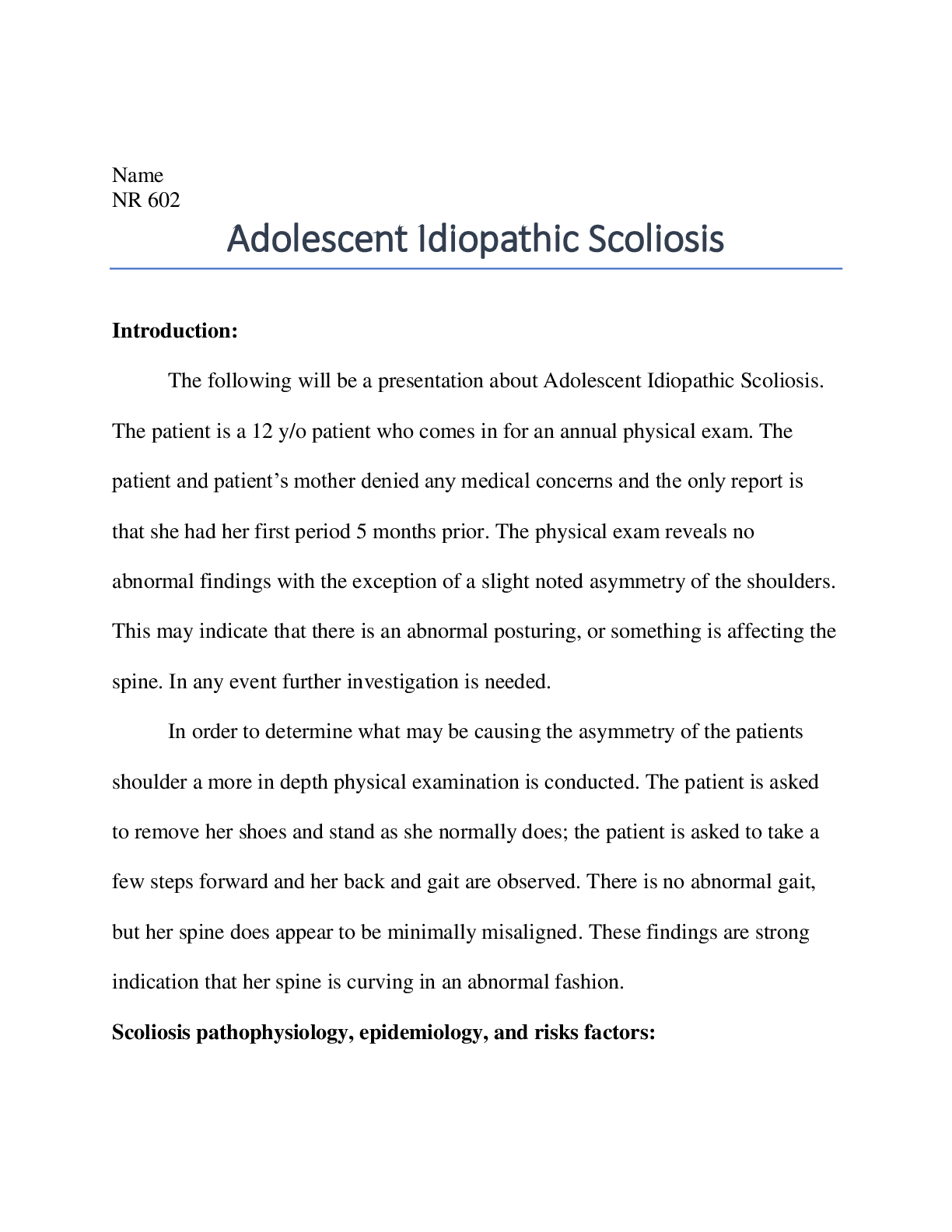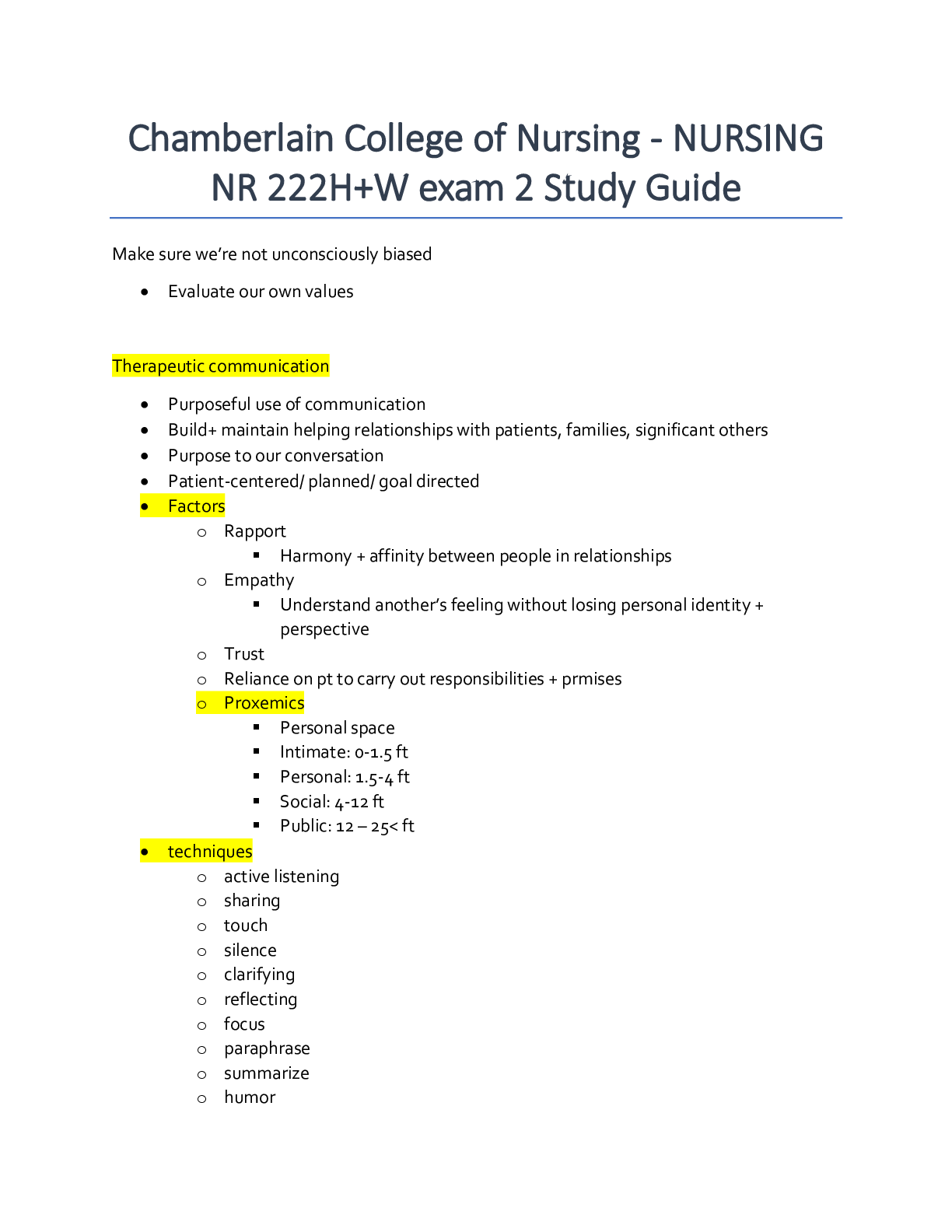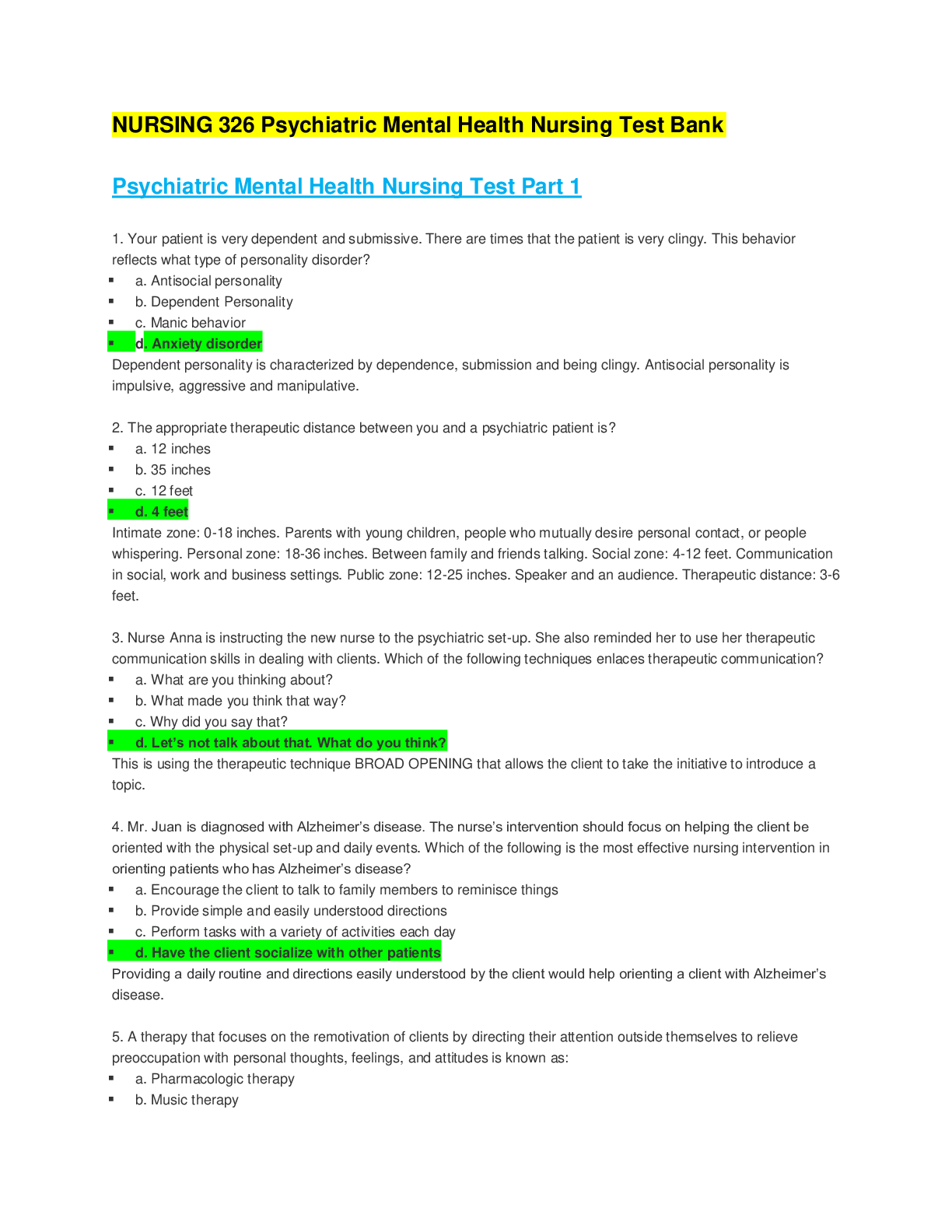Health Care > QUESTIONS & ANSWERS > ATI Ethical and Legal Issues in Critical Care Nursing Test Bank Chapter 3 Chamberlain College of Nur (All)
ATI Ethical and Legal Issues in Critical Care Nursing Test Bank Chapter 3 Chamberlain College of Nursing NR 341 (A Graded) Latest Questions and Complete Solutions
Document Content and Description Below
ATI Ethical and Legal Issues in Critical Care Nursing Test Bank: Chapter 3: Chamberlain College of Nursing NR 341 (A Graded) Latest Questions and Complete Solutions Chapter 3: Ethical and Legal Issue... s in Critical Care Nursing Test Bank MULTIPLE CHOICE 1. Ideally, an advance directive should be developed by the: a. family, if the patient is in critical condition. b. patient as part of the hospital admission process. c. patient before hospitalization. d. patient’s healthcare surrogate. ANS: C Advance directives should be made and signed while a person is in good health and in a state of mind to make decisions about what should happen if he or she becomes incapacitated (e.g., during a critical illness). Families help to make decisions based on written advance directives, but families are not responsible for developing them for the patient. Developing advance directives during the admission process is not feasible, and the patient may not be capable of making an advance directive. The surrogate or proxy is one who has been already designated by a person to make healthcare decisions based on written advance directives. DIF: Cognitive Level: Application REF: p. 33 | Table 3-2 OBJ: Discuss ethical principles and legal concepts related to critical care nursing. TOP: Nursing Process Step: N/A MSC: NCLEX: Safe and Effective Care Environment 2. A critically ill patient has a living will in his chart. His condition has deteriorated. His wife says she wants "everything done," regardless of the patient's wishes. Which ethical principle is the wife violating? a. Autonomy b. Beneficence c. Justice d. Nonmaleficence ANS: A Autonomy is respect for the individual and the ability of individuals to make decisions with regard to their own health and future. The wife is violating the patient's autonomy in decision making. Beneficence consists of actions intended to benefit the patients or others. Justice is being fair. Nonmaleficence is the duty to prevent harm. DIF: Cognitive Level: Analysis REF: p. 27 | Box 3-1 OBJ: Discuss ethical principles and legal concepts related to critical care nursing. TOP: Nursing Process Step: N/A MSC: NCLEX: Safe and Effective Care Environment [Show More]
Last updated: 2 years ago
Preview 1 out of 23 pages
 Latest Questions and Complete Solutions.png)
Buy this document to get the full access instantly
Instant Download Access after purchase
Buy NowInstant download
We Accept:

Reviews( 0 )
$16.00
Can't find what you want? Try our AI powered Search
Document information
Connected school, study & course
About the document
Uploaded On
May 24, 2021
Number of pages
23
Written in
Additional information
This document has been written for:
Uploaded
May 24, 2021
Downloads
0
Views
69


 Questions and Answers (latest Update), All Correct, Download to Score A.png)





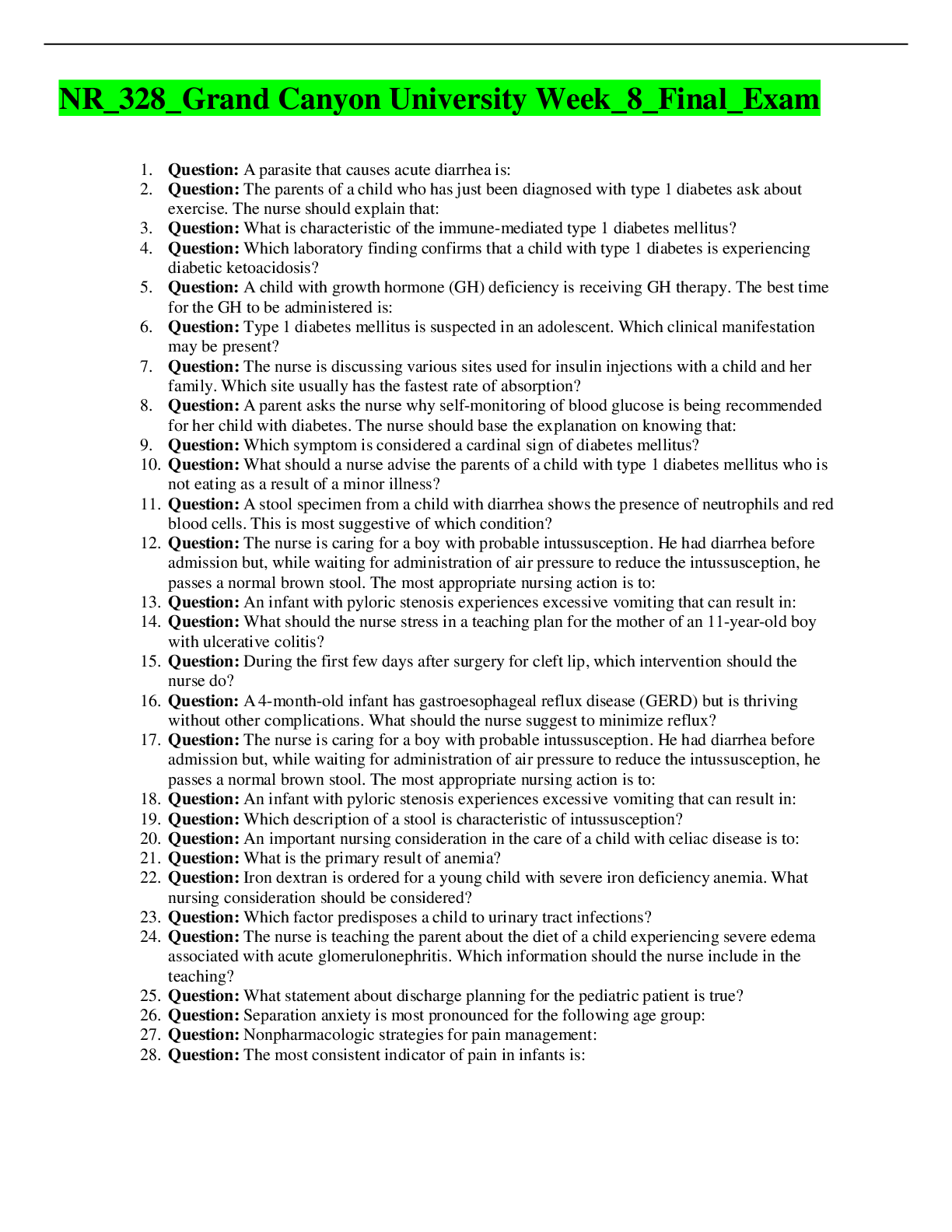
, (A Grade), Questions and Answers, All Correct Study Guide, Download to Score A.png)
, Questions and Answers, All Correct Study Guide, Download to Score A.png)
, Latest Questions and Answers with Explanations, All Correct Study Guide, Download to Score A.png)

